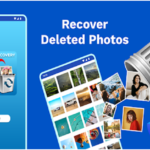![]() In today’s fast-changing world, knowing how to manage and utilize your time efficiently is vital. Be it a freelancer recording hours for different clients or a part of a larger organization balancing several projects, one can always avail oneself of the benefits provided by modern technology. In this blog post, I will highlight some tools that you can begin utilizing today. As an added bonus, I’ll share my personal favorite too!
In today’s fast-changing world, knowing how to manage and utilize your time efficiently is vital. Be it a freelancer recording hours for different clients or a part of a larger organization balancing several projects, one can always avail oneself of the benefits provided by modern technology. In this blog post, I will highlight some tools that you can begin utilizing today. As an added bonus, I’ll share my personal favorite too!
Why Counting Minutes Matters
Before jumping into discussing time-tracking tools, let’s explore their benefits:
Billing and transparency—Keeping track of your time provides accurate records, which assists in justifying rates to clients.
Insights on Productivity—Knowing which processes drain time versus those that add value are key commodities in any organization.
Efficiency of Team—Managers get visibility into resource allocation and bottlenecks.
During my freelancing days, I used to estimate time based on my gut feeling. To my surprise, I found out I underbilled by almost 20%. That eye-opening revelation led me towards finding efficient tracking systems for my work.
1. Controlio Tool—For Accountability and Insight
The tool you requested was “Controlio Tool,” so here it is!
Picture this: eliminating inefficiencies while meticulously logging billable hours simultaneously. That is the Controlio experience for me during a three-month audit project. It tracks time as well as provides a record of work done, uncovering hidden inefficiencies.
For those looking to optimize their workflows, Controlio takes productivity to the next level by not just tracking time but also offering deep insights into employee activity.
2. Toggl Track—Simplicity Meets Power
Toggl Track is the gold standard for solo professionals and small teams. It features a one-click timer and flexible manual time entries. Use it on web, desktop, or mobile—your time syncs across all devices.
What won me over:
- Instant insights: daily and weekly reports that clearly show where your hours went.
- Easy exports: ready for invoicing or sharing with stakeholders.
- Browser extension: track tasks directly from Trello, Asana, or Gmail.
Need a personal anecdote? During a week managing two client campaigns, I was struck by how much Toggl revealed my poor delivery versus heavy prospecting. The report encouraged me to mid-week tweak my routine—and boy did that change things for the better!
3. Harvest—Time Management and Billing Software Simplified
What makes Harvest different is the automatic invoicing, billing, and expense management features that come along with tracking time. It’s one of the oldest SaaS billing tools around, having been created in 2006.
Here’s why it’s a great pick:
- It helps you forget about unpaid invoices—Harvest chases clients’ unpaid invoices automatically.
- Expense tracking allows users to add receipts and allocate them to certain projects so they can be billed to the client.
- The software works with other applications like Basecamp or QuickBooks through third-party integrations.
When I was planning for a book launch, I used Harvest for three months. Besides being able to monitor how my 120 hours were spent, I could easily pay for travel reimbursement, tools, and freelance support—all through one platform.
4. Time Doctor—Improved Focus and Comprehensive Insights
Time Doctor has always offered services beyond just logging working hours; it offers screenshot captures and monitoring of other applications alongside web pages, which creates an overview of productivity as illustrative data. This is great for:
- Freelancers who work on contracts with pay based on performance metrics.
- Remote teams who need some accountability built into their work.
- Manager-free workers looking to be aware of distractions connected with self-management.
I tried Time Doctor during my most creative period. The data showed me that I ‘wasted’ about 30 minutes daily alternating between social tabs. Once I became aware this habit was affecting my ability to complete tasks that needed me to concentrate, commonplace activities in my workload noticeably improved, as did outcomes.
5. Everhour—Collaboration-First Tracking
Everhour is designed for collaboration-focused teams as it integrates with Asana, Trello, and Jira.
Why teams love it:
- Team dashboards: see who’s working on what in real time.
- Budget safeguards: get alerts before a project exceeds its time budget.
- Quick invoicing: syncs data with FreshBooks or QuickBooks for smooth billing.
In my last agency role, I used Everhour across a five-person marketing team. Watching each member’s logged time allowed us to proactively reassign tasks—no more frantic dash before deadline finishing.
Selecting the Most Appropriate Tool for Tracking Time
From this set of tips, I’d advise that you think about
- Your invoicing method: Is tracked time purely operational data, or will you charge for every hour worked?
- Solo versus group operations: Will personal monitors be preferred over collaborative dashboards?
- Required detail level: basic logs or detailed analyses supported by screenshots?
- Integrations: Would you want synced accounting software or apps related to projects?
Last Reminder: Adapt Time Tracking To Serve You Best
Acing time-tracking requires a paradigm shift—from micromanagement tools to self-evaluation and optimization frameworks.
Start by selecting one tool. Use it for a week and analyze the data. Make adjustments to your workflow based on the analysis. Only then should you integrate a second tool or integration based on your following requirement.
For example:
- Start off with Toggl Track for timing purposes.
- Add Harvest for smooth billing.
- Want performance snapshots? Then introduce Time Doctor or Controlio software.
- Team clarity? Everhour is your choice.
Final Thoughts
Tracking time has become really crucial in today’s age of digital distraction alongside remote working setups. The right tools to keep track of your time help lighten mental load, protect daily focus, and sharpen focus, as well as make sure no tasks are left unattended.
Select your dashboard, switch on the timer, and begin tracking your minutes effectively because time mastery isn’t limited to enhanced productivity—it’s, in fact, about regaining control of one’s life.









Leave a Reply
You must be logged in to post a comment.